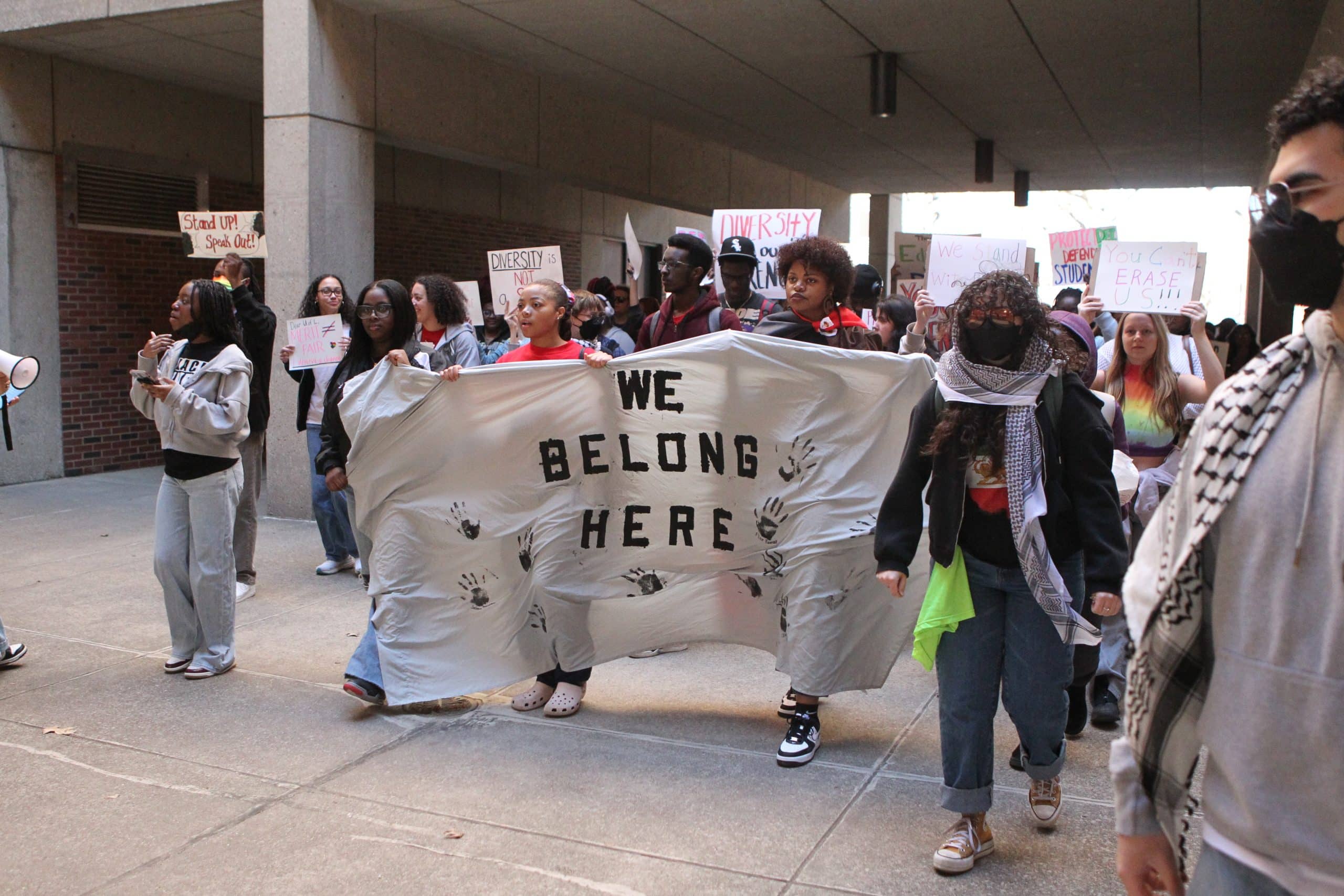By Jaydon Michalczyk
Kentucky college campuses are changing. Since July, student rights and our university communities have been attacked.
Kentucky House Bill 4, the anti-DEI bill, is responsible.
Last spring, the Kentucky legislature voted to pass HB4. Ever since, along with federal anti-DEI pressure, Kentucky colleges have seen scholarship requirements change, campus associations severed, diversity offices eliminated and staff leave.
This couldn’t have come at a worse time, as we students face increased tuition and heightened political divisiveness.
Today, navigating a university is harder than ever. There’s a litany of websites, paperwork and phone calls, which is nothing compared to the cost of attendance.
Travelling for college and spending a hundred thousand dollars or more in just four years didn’t seem reasonable considering my family’s financial situation. For many first-generation students, this is the case.
I hadn’t even heard the term “first-gen” until I came to the check box on my application. Yet, it slowly made sense that this classification had a tangible impact on my experience.
Many of the questions I had about college, I resorted to the overworked school staff. Other times, I’d go down internet rabbit holes for accurate information.
More importantly, though, as a first-generation student, affording college continues to be a roadblock.
Scholarships are everything in a society where college loans can cost as much as a home mortgage.
When I started at U of L in 2022, the resources for first-gen students made me feel welcomed. Programs like READY Mentoring offered me a chance to speak regularly with a former first-gen student who was advanced in his career.
There’s also First-Gen Cards, which hosts events related to college life, financial management and self-care.
As a first-gen student, I have direct experience with centers, programs and scholarships that are designed for diverse student populations. I wouldn’t have persisted in my undergrad so easily if not for these resources.
So, in the wake of DEI-dismantling legislation, I couldn’t help but think of my time as a first-gen student. HB4 rids of practices “designed or implemented to promote or provide differential treatment or benefits to individuals on the basis of religion, race, sex, color, or national origin.”
How can I be afforded beneficial and differential treatment as a first-gen student, but the same opportunity cannot be granted to students of color, women, and LGBTQ+ students? Especially when these groups have historic disparities in education opportunities in Kentucky. These policies were meant to alleviate those inequities.
There are first-gen specific programs, scholarships, awards and ceremonies. These exist to bring people together for unity and celebration. Again, why can’t the same be provided to black and brown students? LGBTQ+ students? Women?
Were Kentucky legislators not rooting for what they say they oppose, drawing lines around some students and not others?
House and Senate Education Committee meetings supplied further evidence that HB4 was not designed with student voice in mind.
The carelessness stretched so far as to break legislative rules and disregard student’s concerns during the committee. When students showed up in numbers with scheduled testimonies, the meeting was cut short. At another, we were threatened to be kicked out.
As HB4 has been implemented as state law KRS 164.2894, student communities have been broken up and beat down. It’s shown the lack of care Kentucky’s legislature has about both student opinion and life on campus.
From the start, administration was in overcompliance. At U of L, the black and LGBTQ graduation events were cancelled before the law was even passed. Diverse employee groups were disbanded, despite the legislation never requiring it.
In creating this law, the legislature has further divided campuses. This is happening while the federal government makes cuts to the education department, university offices and research. These decisions are already impacting university support for low-income students nationwide.
Funding for first-gen TRIO Student Success Services is also on the chopping block, as 120 programs were closed nationally last month. There’s a culture of devaluing education and Kentucky’s legislators fell in line last session.
Next session, legislators need to consider how they can strengthen education for students. If they truly care about lessening the divide and prejudice, they need to foster community on campus.
The way to do so is not to cut student opportunities, it’s to promote them.
This coming spring, we need HB4 to be reversed. This will only happen if students continue to show up for each other. If we want college to be worth it, we have to defend it.
Jaydon Michalczyk is a public health and psychology major here at U of L, and executive board member of the Bluegrass Student Collective, a group dedicated to serving the underserved.
Photo by Vinny Porco / The Louisville Cardinal






